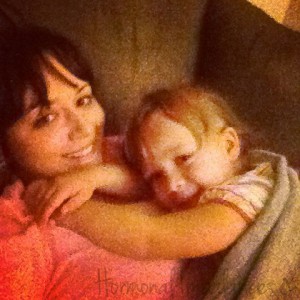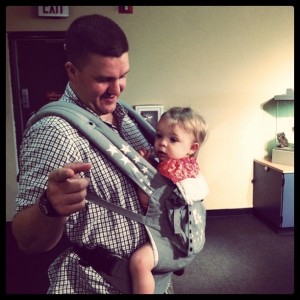I lost my sons in May at 20 weeks after a long, hard pregnancy. When I came home to my little girl, 2 1/2 at the time, it was both a relief to be with her and a hardship to be around her.
I’d spent a week in the hospital longing to be with her, unsure of how long I’d have to stay. I would have remained for any amount of time to keep those babies in, but I didn’t know how long that would be. In the meantime, I missed my little girl. It was hard for her to interact with me on a hospital bed where I laid, and tough for her to not jump and be loud in the room where we all would visit.
I came home a mess, walking in the door to a flood of “should have’s” that would never happen now. And then my little girl, she was a constant reminder of what I would miss seeing from my sons. Fingers, toes, little faces, even the color of her eyes. It all haunted me and I’d end up sobbing while trying to pull it together for her.
My guilt of not being able to be the mom I wanted at that time and the sorrow of everything else caused me to really, really rearrange my priorities and accept emotions I couldn’t before. We began to discuss openly how it was ok to be sad, to be angry, to be happy. She would ask about the “two babies” and I could talk to her about it very simply.
We started to see a play therapist for her, who encouraged us to work on labeling our feelings around her. I started to see her as well for the fear of losing Bella. Something I think most parents who lose a baby worry about. We work on normal things like temper tantrums and her flair for the dramatic when it’s time to take a bath :), as well as the processing in her mind of just where the two babies went, what heaven is, why mommy was so sad and still can be some days.
We haven’t handled this all perfect, but we have tried to leave her with less scarring than maybe might have happened.


